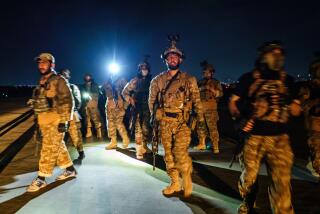Afghans caught between hope and fear over U.S.-Taliban deal
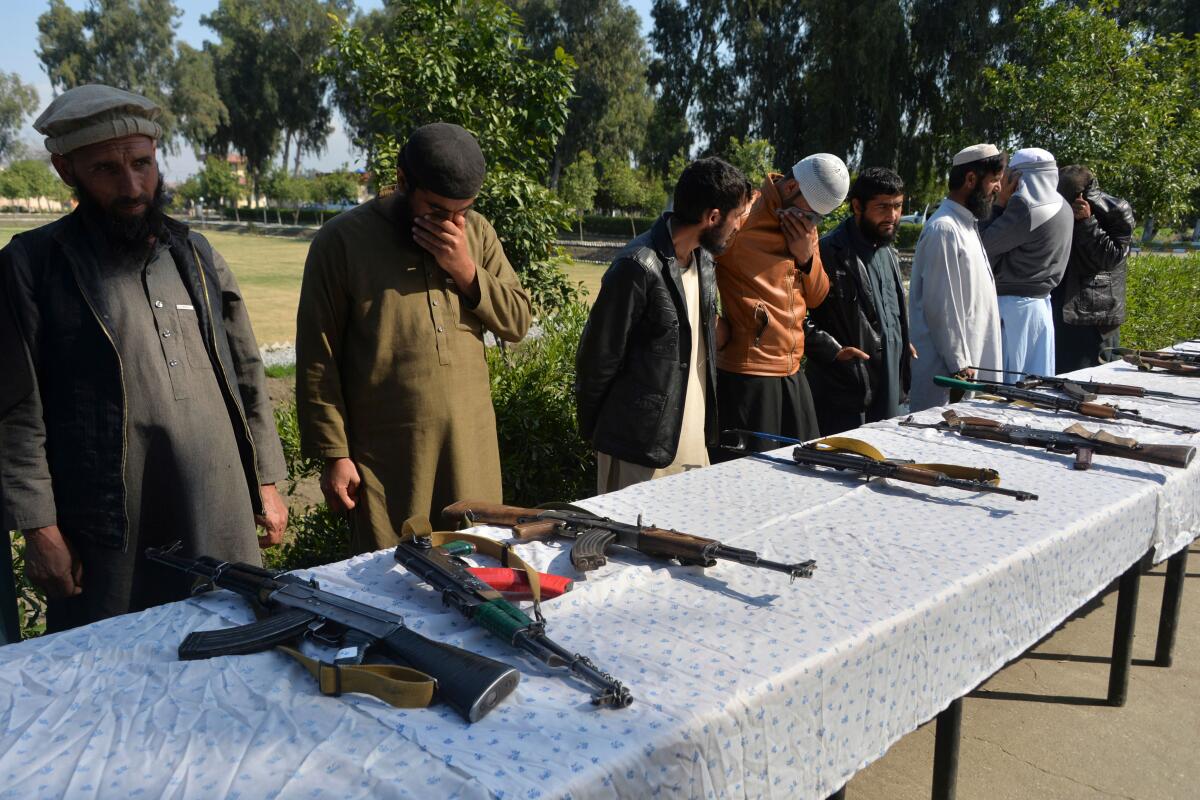
KABUL, Afghanistan â Loud laughter erupts as Murtaza, 2, and his cousins chase one another through the living room, a bright space with cushions lining the walls and a black-and-white television set in the corner, playing an ad about the hopes for peace in Afghanistan.
Murtaza is now an only child; his older brother was killed in a suicide attack.
On Saturday, the United States and the Taliban signed a landmark deal in Qatarâs capital, Doha, calling for all U.S. troops to withdraw from the war-torn country within the next 14 months.
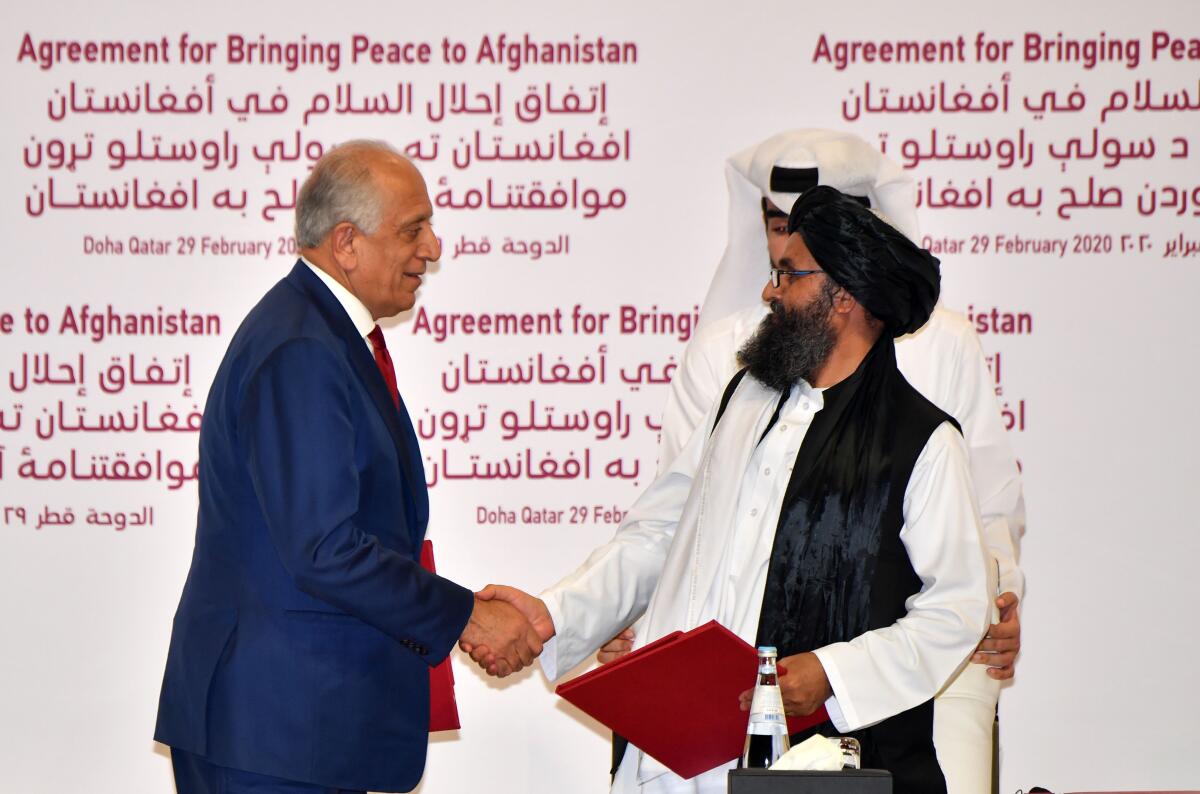
The Central Asian country has seen more than four decades of conflict, nearly half of them since the U.S.-led invasion in response to the Sept. 11, 2001, attacks in New York and Washington planned by Al Qaeda terrorists based in Afghanistan. Since then, tens of thousands of Afghans have been killed, as well as 3,500 troops from the U.S. and allied nations.
The peace agreement is contingent on Taliban militants preventing Al Qaeda and other terrorist groups from again using Afghan territory to threaten the U.S. â and on the Taliban negotiating a power-sharing agreement with the U.S.-backed Afghan government in Kabul.
With those talks due to begin March 10, Afghans are caught between hopes and fears.
âPeace is the big word right now,â said Habibullah Baloch, 68, grandfather to Murtaza and Mustafa, 6, who was killed in a November attack in Kabul that targeted an armored vehicle. Eleven others also died. Both the Taliban and the militant groupIslamic State carry out such attacks, but no group claimed responsibility for the one that took the childâs life.
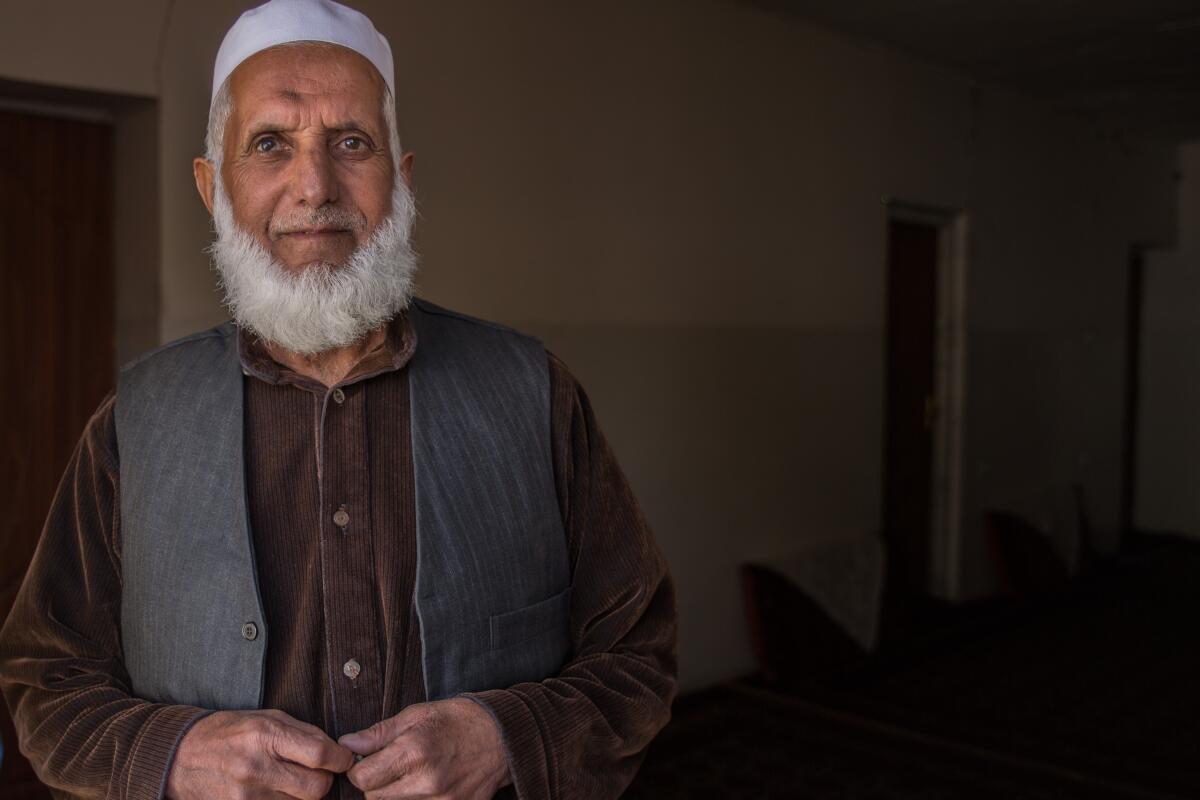
Last year alone, more than 10,000 civilians were killed and injured in Afghanistan, and casualties caused by the Taliban rose by 21%, according to the United Nations.
âIâm happy the U.S. and the Taliban signed a deal. Maybe it will finally stop the explosions and maybe there is hope,â Baloch said, his voice drowned out by a helicopter flying over the house, shaking its frail windows.
The boysâ mother, Rahima Baloch, 25, agreed. âWe have lost our child, but maybe others can be saved. Of course we canât expect anything from the Taliban, but part of me hopes that the deal could bring an end to this violence.â
The members of the family watched Saturdayâs ceremony â the agreement being signed by U.S. Special Representative Zalmay Khalilzad and Taliban political leader Mullah Abdul Ghani Baradar â as they sat cross-legged on the floor, their eyes glued to the TV screen.
âIt was a positive moment,â Rahima Baloch said.
Across the street, a family that has suffered from the tragedy voiced disagreement.
âThroughout my life, Iâve never seen peace, Iâve never had a good life and I donât think a deal between America and the Taliban will change this,â Mina Seddiqi, 27, said, her eyes welling with tears.
She didnât bother watching Saturdayâs ceremony and she doesnât believe that peace is in the cards for Afghanistan.
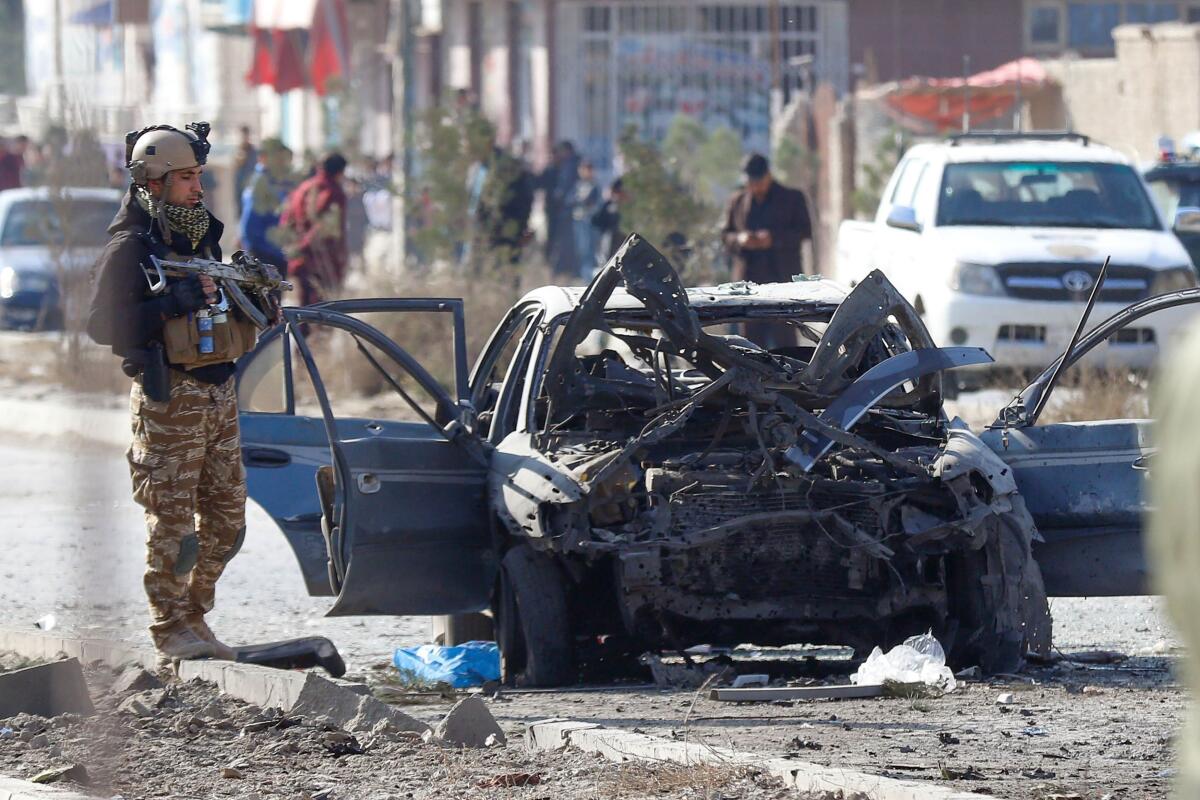
Seddiqiâs niece Dunya, 10, and nephew Hadis, 7, were on their way to school with their neighbor Mustafa when the car bomb struck. Dunya and Hadis perished along with Mustafa.
âIf the Taliban comes back, I want my children out of the country,â said Seddiqi, the mother of a toddler girl and a newborn boy. âI lived under their regime as a child, I donât want to go back â and I definitely donât want my children to grow up that way.â
Saturdayâs agreement stated that the U.S. would downsize its troops from about 12,000 to 8,600 in the next 135 days, while the Taliban agreed to not host foreign terrorist groups on Afghan soil.
The morning after the deal was signed, Afghan President Ashraf Ghani assured the nation that a weeklong reduction in violence, observed ahead of the signing ceremony in Doha, would continue. âOur objective is to turn it into a permanent cease-fire,â he said.
But as direct negotiations approach, obstacles remain. The Taliban does not recognize the Afghan government as a legitimate entity and Ghani, who was reelected to another five-year-term just days ago, is entangled in a dispute with his rival, Abdullah Abdullah, who considers the results fraudulent and has declared himself the winner. Among other things, the two men also are divided over the negotiating team that is due to meet the Taliban for direct talks.
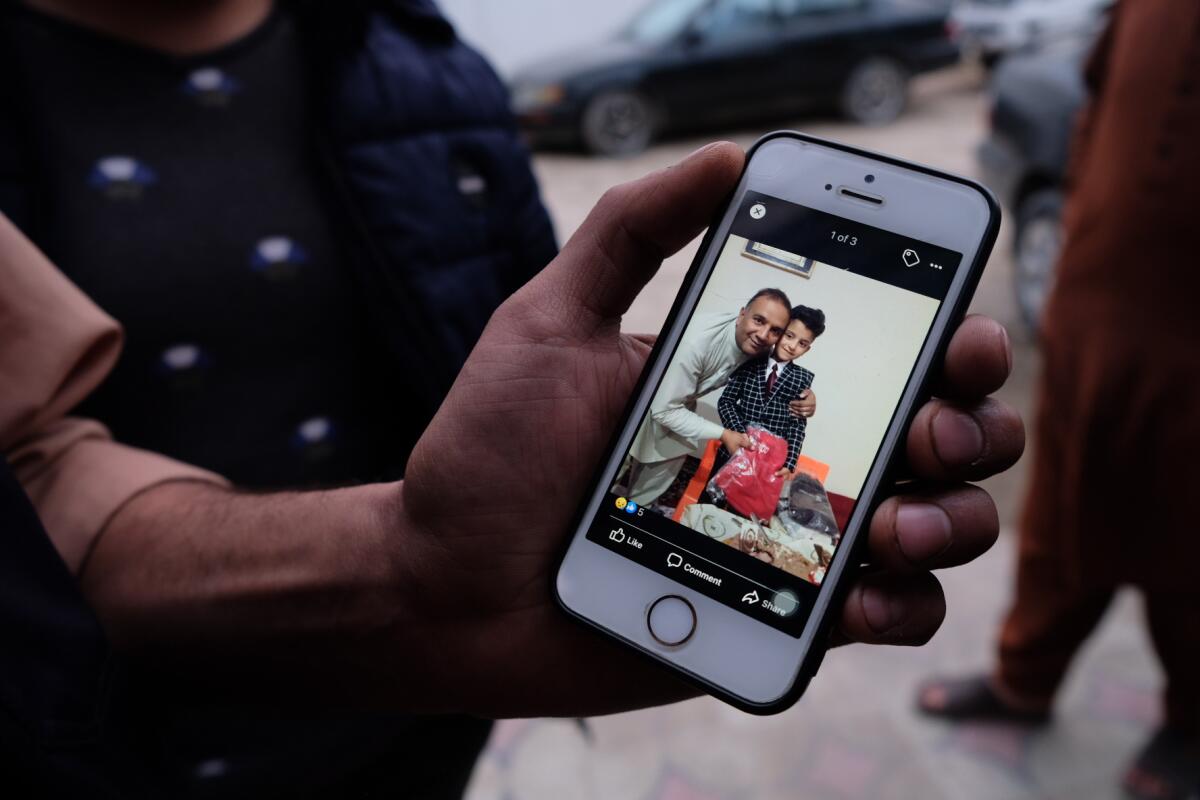
Ghani announced Sunday that he did not plan to release 5,000 Taliban prisoners ahead of the intra-Afghan talks.
âThere is no commitment on the release,â he said, adding that it would take a long time to even release 100 prisoners.
President Trump, who called Ghani on Sunday, said he believes the Taliban wanted to do something to show âweâre not all wasting time.â
âIf bad things happen, weâll go back with a force like no oneâs ever seen,â Trump said.
Such words do nothing to sway many Afghans who lived during the iron-fisted rule of the Taliban, ousted in the 2001 U.S.-led invasion.
âIâm worried,â said Zarifa Ghafari, 26, mayor of Wardak provinceâs capital, Maidan Shahr, and a political activist. âThe Taliban is still a group of terrorists. I hope the international community will not let anything happen to the future and the social and political accomplishments of Afghanistan.â
Kabulâs streets remained quiet Sunday morning, as many in the nationâs capital held their breath. Peace is desirable, they say, yet an underlying fear is tangible.
âThis was the easy part,â Laurel Miller, Asia director of the International Crisis Group, said of the deal. âThe negotiations among the Afghan parties that are supposed to start in a matter of days will have to tackle much more difficult issues of who gets to wield power in the country and how the government is going to be organized.â
Back on the quiet street of Murtazaâs home, his mother acknowledges that itâs been hard trying to tell her 2-year-old where his brother went.
âHe seems happy, but a heavy burden lies on our family,â Rahima Baloch said. âWe are afraid, but we also hope. Our hearts are heavy, but we cannot give up.â
Glinski is a special correspondent.
More to Read
Sign up for Essential California
The most important California stories and recommendations in your inbox every morning.
You may occasionally receive promotional content from the Los Angeles Times.


